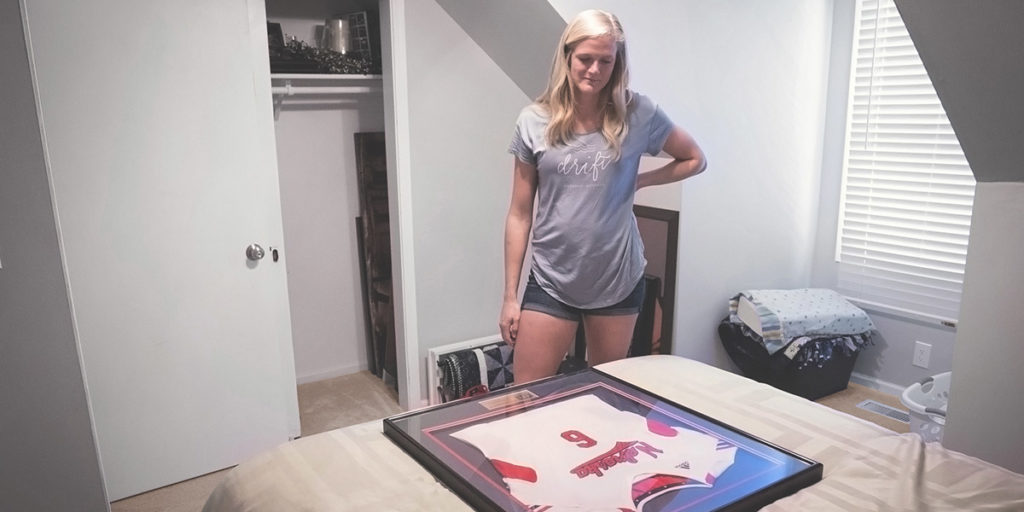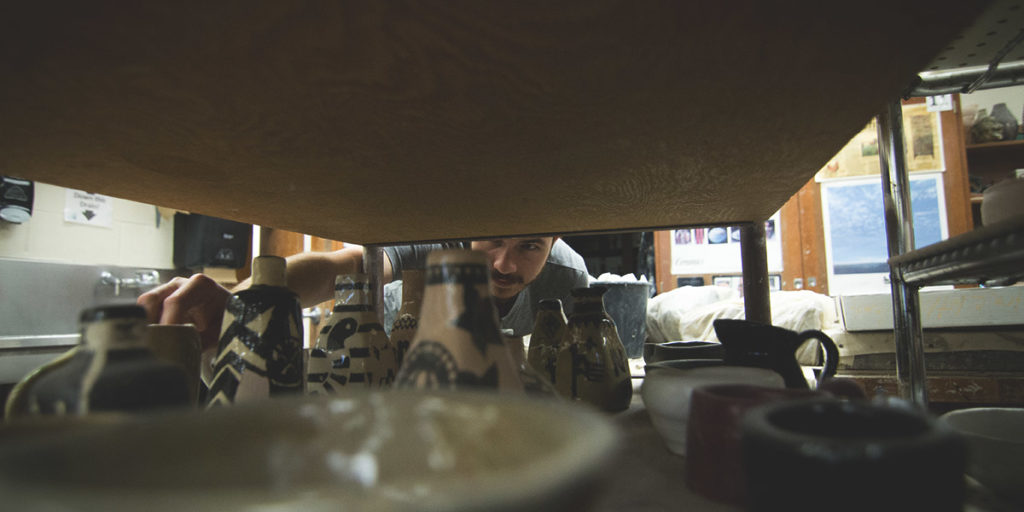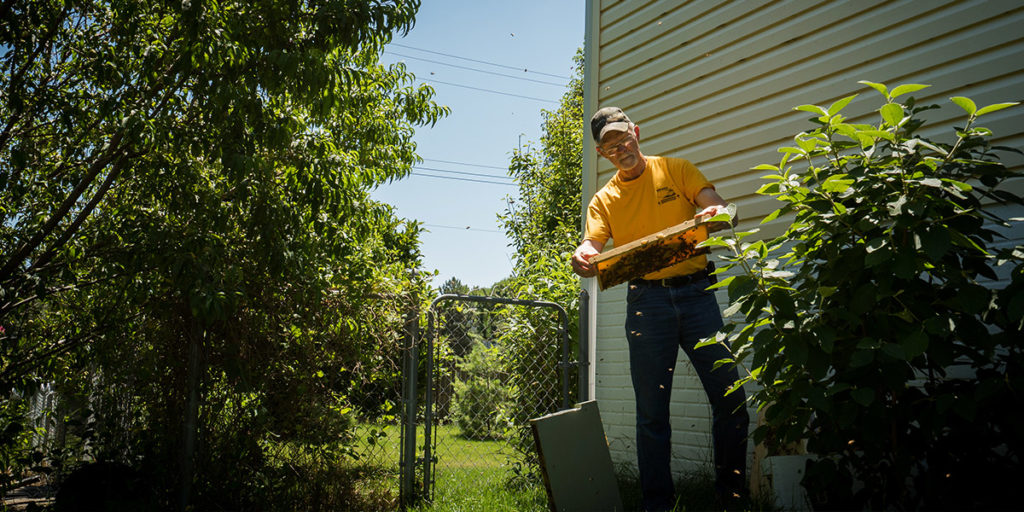
Jordan Sauer wasn’t so sure she had a story to tell.
Sitting in her quiet living room, with her toddler napping upstairs, she explained that her life is pretty ordinary. It’s not dramatic, overly adventurous or glamorous – but that’s not what makes a story worth telling.
Over the past 28 years Jordan has worked to understand her story. There have been highs and lows, moments she wishes she could re-do or experience in a new way. Mostly, Jordan said a lot of her past has shaped her future.
Jordan grew up in Scottsbluff, Nebraska in an athletic family. Both of her parents played collegiate sports and Jordan’s height and athletic abilities made it natural to follow in their footsteps.
In middle school, she tried everything from track to basketball and volleyball. She liked the pace and competitive nature of basketball, compared to volleyball which seemed a little too tame. But in high school, Jordan took volleyball a little more seriously. She proved herself as a strong player and attended summer training camps at UNL.
During one of the camps she met UNL head volleyball coach John Cook, who took her aside to ask her if she’d ever thought about playing collegiate volleyball. It wasn’t something Jordan had even considered or thought was possible, but her conversation with coach Cook got her thinking.
From Jordan’s perspective, playing volleyball at UNL was a long shot. She knew she wasn’t the most skilled player, which was why she was surprised when she received another call from coach Cook.
He explained that he thought she was a strong athlete and hard worker and he offered her a walk-on spot at UNL. There was no promise of playing time, just the opportunity to build her skills and be part of a world-class program. Jordan took it.
Her freshman year was difficult. She was far from home and adjusting to her class load and the pressures of being a collegiate athlete. Jordan said she quickly realized she was definitely one of the weaker players on the court. She lagged behind during practice and was often told to shag stray balls instead of doing drills.
She said coach Cook joked about the fact that she didn’t say a single word during the first month of practice, which probably wasn’t far from the truth. It was intimidating and even a little embarrassing, but Jordan said she chose UNL because she knew it’s where she would become the best player she could be, even if she never stepped on the court during a game.
Over the next two years, Jordan said she grew as both a player and a person. She gained confidence in herself with the help of her teammates, and began to see herself as part of a team. She may not have been the best player on the court, but this fact didn’t make her feel inadequate, it just pushed her to work harder.
Toward the end of her sophomore year, one of her teammates was injured and Jordan stepped up to fill her spot. It was a big moment, and there was a lot of pressure, but Jordan faced the pressure by focusing on playing. She continued to get playing time and made it into the starting lineup. Jordan was becoming a more noticeable player and her confidence grew each game.
But during her junior year things shifted. There was new leadership, new players, new drama and instead of stepping up, Jordan stepped back. She was passive and withdrawn, which impacted her attitude and her playing. Her coaches pointed this out, but Jordan didn’t think it was a big deal. She didn’t see what was happening to herself and her team because of her attitude. Jordan went from being a starter to barely playing toward the end of the year.
She attributes her attitude to a lack of maturity and an inability to take responsibility for her actions. When Jordan finally stepped back and saw this, she knew she needed to do something about it. She apologized to her coaches and team members and then made it a point to make her final years different.
Jordan says she still thinks about that year of her life. Her bad attitude was so silly, but also serious because of the way it impacted the people around her – and the scary part was that it took nearly a year for her to notice.
Her selfishness blinded her to the needs of others, but it taught her that life isn’t just about herself. This lesson transferred to the volleyball court as she finished out her last two years of playing and earned her Master’s degree in education.
But it’s a lesson Jordan carries with her into her role as wife, mother, friend, substitute teacher and coach. She has seen the reward of investing in others in a way that brings life to her own story and allows her to see others more clearly.
Playing college volleyball wasn’t an adventure Jordan dreamed about as a kid. It was something she tried because she was encouraged to do so. It taught her about who she was, who she didn’t want to be and who she could become.
Jordan said every so often someone at the grocery store looks at her sideways or asks if they’ve met her before. Sometimes she explains why they might recognize her and other times she just laughs it off.
Even though people might recognize Jordan as a former Husker volleyball player, she’s so different than the tall, middle blocker they saw on TV or at games. Her experience as an athlete set her up to think long and hard about her weaknesses and strengths and how to use those to live a story that’s worth telling.


